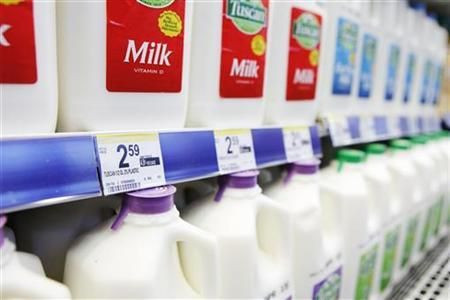New Zealand's Marketing Curbs On Infant Formula To Stay: Ministry Directs Association To Stick To The Code

The New Zealand Government’s anti-trust watch dog Commerce Commission has authorised the Infant Nutritional Council to conform to its code of practice that restricts advertising and marketing of infant formula for children below six months of age. The authorisation protects the applicant from court action under the Commerce Act by the Commission or other private individuals.
The INC is the association of infant formula industry in Australia and New Zealand and comprises manufacturers, marketers and importers of infant formula. It advocates optimal nutrition for all infants by breastfeeding first and infant formula as the only suitable alternative, if at all required.
Benefits
The INC had moved an application to the Commission to authorise its Code under section 58 of the NZ Commerce Act and also highlighted the fact that the curbs on advertising and marketing were affecting competition. The Commission, in its response, as stated by Dr Mark Berry, Chairman said, “After considering the feedback from a number of interested parties, the Commission has reached the view that the public benefits arising from higher breastfeeding rates outweigh any lessening of competition from the arrangement.”
INC Chief Executive Jan Carey, welcomed the Commerce Commission’s decision and said the INC applied to the commission for authorisation of the Code, mainly to reassure its members that it was the most appropriate response in New Zealand to the WHO Code and they have to comply with the law. Carey said the INC fully agreed with Berry’s comments that the public benefits from higher breastfeeding far outweigh any lessening of competition from the arrangement.
Major Restrictions
Under the Code, the marketing of infant formula products suitable for infants up to the age of six months will face the following restrictions
· No advertising of infant formula
· No distribution of gifts or free samples to pregnant mothers or caregivers
· Not offering inducements to health professionals to promote infant formula.
It may be mentioned that the INC’s authorisation application for its Code of Practice was only meant for infant formula for kids less than six months of age, and did not cover milk formula products, such as follow-on formula and toddlers’ milk, reports AusFood News.
The curbs on infant formula, under the code had been in place since 2012, in line with New Zealand’s commitment to the World Health Organisation’s International Code of Marketing of Breast Milk Substitutes. Some of the INC members are Abbott Nutrition, Aspen Nutritionals, Bayer, Fonterra, HJ Heinz, Nestle, Nutricia. Associate members include Synlait, New Image Group, Westland, and Dairy Goat Co-operative.
Carey also clarified that the authorisation of the Code will not mean any further restrictions on the availability of infant formula. “There will be no change at all to the current restrictions on infant formula marketing or selling in New Zealand, or to the price promotion of infant formula,” she said.
(For feedback/comments, contact the writer at kalyanaussie@gmail.com)





















